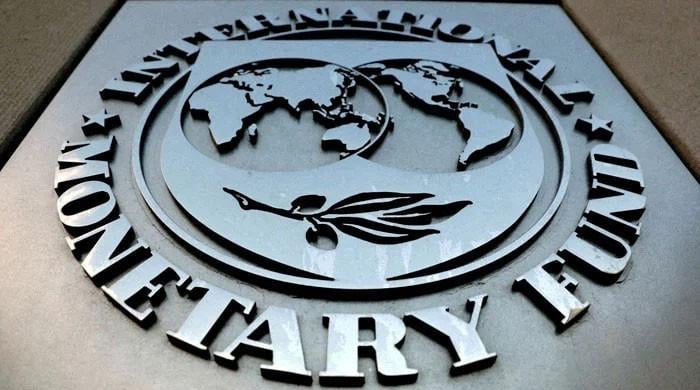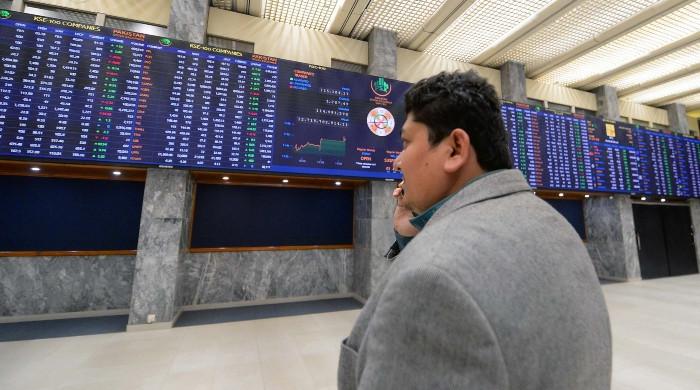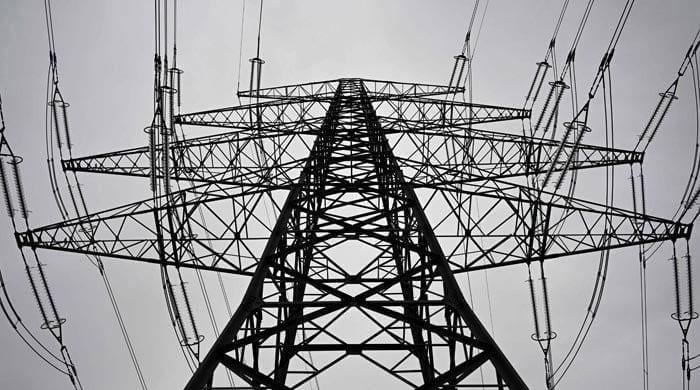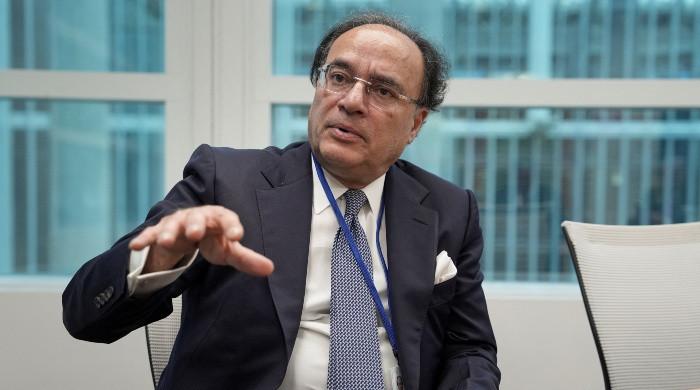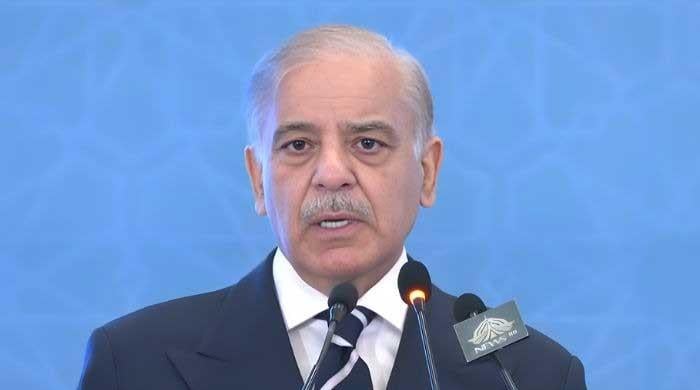Elections, reforms to boost confidence in Pakistan’s economy: ADB
Report says GDP is expected to experience a modest recovery, reaching 1.9% in the fiscal year 2024
September 20, 2023
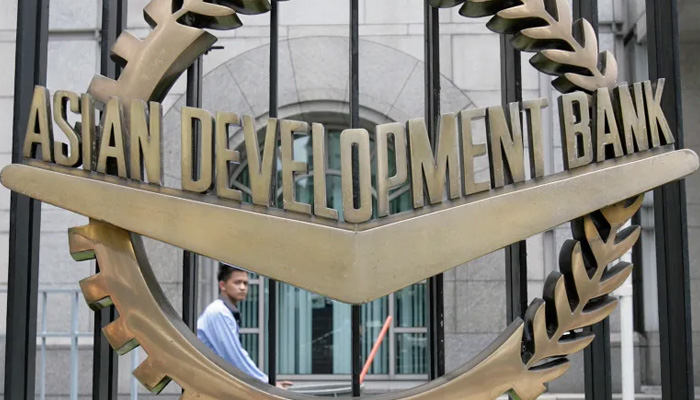
- GDP growth expected to experience a modest recovery.
- Inflationary pressures to remain elevated amid hike in energy tariffs.
- Continued weakening of rupee to also impact inflationary pressures.
The Asian Development Bank (ADB) has expressed optimism regarding Pakistan's economic prospects, highlighting that the reform programme and smooth conduct of upcoming general elections are likely to restore investor confidence in the country's economy.
The regional financial institution, in its report released on Wednesday, underscored the significance of Pakistan's commitment to an economic adjustment programme until April 2024, which is crucial for reestablishing macroeconomic stability and facilitating the gradual resurgence of economic growth.
According to the Asian Development Outlook (ADO) for September 2023, Pakistan's gross domestic product (GDP) growth is expected to experience a modest recovery, increasing from 0.3% in FY2023 to 1.9% in FY2024, although inflationary pressures are expected to persist.
However, significant downside risks to the outlook remain, including global price shocks and slower global growth.
The ADB also anticipates a decrease in Pakistan's inflation trends to 25% in FY2024 from the elevated 29.2% experienced in FY2023 in the wake of base-year effects setting in, normalisation of food supply, and a moderation in inflation expectations.
"However, sharp increases in energy tariffs under the economic adjustment programme, and the continued weakening of the rupee will keep inflationary pressures elevated," it added.
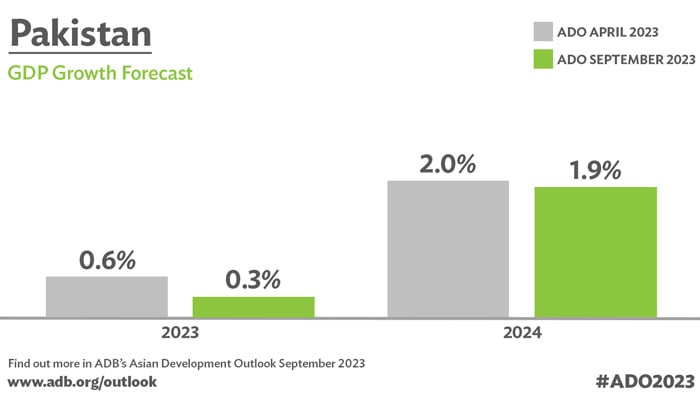
According to the Asian Development Bank (ADB), the gross domestic product (GDP) growth of Pakistan is expected to experience a modest recovery, reaching 1.9% in the fiscal year 2024 (spanning from July 1, 2023, to June 30, 2024), marking an improvement from the meagre 0.3% growth recorded in FY2023.
This anticipated recovery will come amidst the persistence of increased price pressures, and there remain significant downside risks to this outlook, primarily stemming from potential global price shocks and the potential for a slowdown in economic growth around the world.
ADB Country Director for Pakistan Yong Ye said that the country's economic prospects are closely tied to the steadfast and consistent implementation of policy reforms to stabilize the economy and rebuild fiscal and external buffers.
"Greater fiscal discipline, a market-determined exchange rate, and speedier progress on reforms in the energy sector and state-owned enterprises are key to reviving economic growth and protecting social and development spending," he added.
Pakistan's economy, in FY2023, has faced a series of challenges, including severe floods, global price shocks, and political instability, collectively leading to weakened economic growth and an increase in inflation.
According to the ADO, the implementation of the economic adjustment programme and a smooth general election in FY2024 are expected to boost confidence, while easing import controls is likely to support investment, the ADB said.
"Favourable weather conditions coupled with government initiatives such as distributing free seeds, offering subsidised credit, and providing fertilisers are projected to bolster the recovery of the agricultural sector," the report mentioned, adding that this will have a "positive spillover effect on the industrial sector, which will benefit from improved access to essential imports."
In its report, the financial institution said it remains steadfast in its commitment to achieving prosperity, inclusivity, resilience, and sustainability in Asia and the Pacific region.




